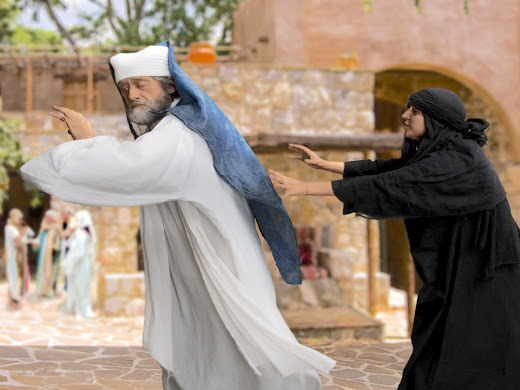Homily for the 31st Sunday of Ordinary Time, Oct. 30, 2022. Gospel of St. Luke 19:1-10. Theme: The Joy of the Gospel!
The Name Jesus means “Savior” and its related word “salvation” means “healing”. The mission and message of Christ the Healing Savior is that he came to repair the spiritual rupture between the human person and God. And a by-product of this healing is the possibility of reconnection with others. Pope Francis calls this healing and reconnection the “joy of the Gospel’. He never tires of reminding us that Jesus showed by words and behavior that no one, no matter who they are or what their situation in life might be, is excluded from this reconnection. No one.
St. Luke never tires of trying to get this message across to us. In today’s passage, he introduces us to a tax collector who was in desperate need of this reconnection with God and others. To better appreciate why we need to remember that the Roman oppressors levied unbearable taxes on the people they conquered. And in order to collect this money they hired Jewish locals to do their dirty work. In addition to the taxes for Rome, these scoundrels added a hefty commission for themselves. This left the people with very little on which to live until the next tax-day which was never far away. These hired men were greedy scoundrels who cared more about money than the good of their nation or their neighbors.
Zacchaeus was one of those guys. Actually he was worse than just being one of those guys because he was the chief tax collector for the region. He had extreme wealth that was built upon the suffering of others. But that’s all that he had. His greed had disconnected him from God and from his neighbors. He was ostracized, lonely, and despised by the Jews of Jericho. It’s no wonder that the people were puzzled and upset when Jesus chose to spend the evening as the guest of such a notorious public sinner!
But despite the fact that Zacchaeus was both a traitor and a swindler – or maybe precisely because of it – Jesus’ merciful heart went out to him. And this love, expressed by Jesus in treating Zacchaeus as a person worth spending time with, deeply touched his hardened heart. Can you imagine what he must have felt when Jesus selected him from among all others in the crowd? St. Luke tells us that he was overjoyed, deeply touched, transformed to his very core. He was converted on the spot! After years of rejection he had found reconnection. After years of exclusion, he had found inclusion which brought him hope for a new life, for a new beginning. I think that the story of Zaccheus can teach us a few important things about reconnection with God and others.
First of all, we see that connection with God has to be something we truly desire from deep within us. By climbing up that sycamore tree, Zacchaeus showed his desire and used all his energy to encounter Jesus and connect with him. In return, Jesus responded and did even more than Zaccheus imagined. God never forces himself into anyone’s life. He awaits an invitation from us, an opening no matter how small, to enter in and reconnect. And once he has it, he doesn’t miss the opportunity but rushes right in!
Secondly, we must be willing to do whatever it takes to make room for God in our lives. I am sure that Zacchaeus had to ignore the taunts and laughter of the crowd, who were most likely ridiculing him as he scurried up the sycamore tree. Seeing and knowing Jesus were more important to him at that moment than what others thought of him. That was the beginning of the Kingdom of God breaking into Zacchaeus’ heart and making a difference. He did whatever it took to facilitate his reconnection with God. We must do the same no matter what others might say or think.
Lastly, our reconnection with God must show itself in our willingness to be reconnected with others. Zacchaeus goes above and beyond what either Roman or Jewish law required of him regarding restitution for the money he had extorted over the years. And he seems to have a real delight in wanting to make these amends to others, to reconnect with them in a positive way. Zaccheus shows us that once we taste the sweetness of reconnection with God it will move us to search our hearts to see if there is anyone we need to forgive or with whom we need to make amends.
So, perhaps today’s Gospel of Zacchaeus can inspire us to examine our relationships with God and others honestly. His story shows us that we must open our hearts up to Christ so that he can reconnect us and restore what has been lost. The Good News of Jesus is that God is always ready and willing to reach out to us, to heal our inner wounds and accompany us in life. Because you see, no one is too dirty for God to cleanse, no one is too broken for God to fix. No one is too far for God to reach and no one, absolutely no one, is too worthless for God to love. That is the “joy of the Gospel”.



